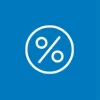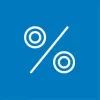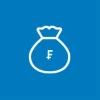What are the advantages and disadvantages of using foreign online trading platforms as a Swiss investor? In this guide, moneyland.ch answers the most important questions about using foreign online trading platforms, and looks at how foreign and Swiss stockbrokers compare:
Can I open an account with a foreign stockbroker?
Not all foreign online trading platforms accept Swiss investors. For example, popular neobrokers like BUX Zero, Robinhood, Scalable Capital, and Trade Republic are not currently available to residents of Switzerland. But there are foreign brokers and banks which do accept investors living in Switzerland. You can find these in the comparisons further down.
Most foreign trading platforms let you complete the full application process online (using video identification, for example).
Which stocks can I trade with foreign trading platforms?
As with Swiss stockbrokers, the exact stock exchanges you can access varies between foreign trading platforms. In general, the scope of investment options is similar to what you get with Swiss stockbrokers.
Stocks vs. CFDs
Many foreign online trading platforms which advertise in Switzerland are not actual stockbrokers, but simply offer contracts for difference (CFDs) based on stocks. Unlike real stocks, CFDs are derivatives which use leverage and have high ongoing costs.
Examples include popular platforms like AVA Trade, Capital.com, Libertex, and Oanda. Service providers that only offer fractional shares (like Bitpanda) also use derivatives.
In all of these cases, you do not own actual stocks, but simply have contracts with the service provider.
How high are the brokerage fees charged by foreign stockbrokers?
Brokerage fees vary broadly between brokers, and may also differ depending on the stocks you buy (US or European, for example). There are also foreign trading platforms which do not charge any commissions for certain stock trades.
Table 1: Brokerage fees of foreign trading platforms available to Swiss investors
| Trading platform |
Swiss stocks |
US stocks |
European stocks |
| Comdirect (Commerzbank) |
EUR 7.90 + 0.25%, max.
EUR 62.90 per trade
(orders up to EUR 2000:
min. EUR 12.90) |
EUR 7.90 + 0.25%, max.
EUR 62.90 per trade
(orders up to EUR 2000:
min. EUR 12.90) |
EUR 7.90 + 0.25%, max.
EUR 62.90 per trade
(orders up to EUR 2000:
min. EUR 12.90) |
| Degiro |
CHF 5.00 per trade
ETFs: EUR 2.00 per trade
(EUR 1.00 for select ETFs) |
EUR 1.00 per trade
ETFs: EUR 2.00 per trade
(EUR 1.00 for select ETFs) |
EUR 3.90 per trade
ETFs: EUR 2.00 per trade
(EUR 1.00 for select ETFs) |
| Flatex |
EUR 5.90 per trade |
EUR 5.90 per trade
(plus 0.04% for portion
of trade in excess of
EUR 40,000) |
EUR 5.90 per trade |
| Interactive Brokers |
Fixed model:
0.05% of
trade value,
minimum CHF 5.00
per trade
Tiered model:
0.015% - 0.05%
min. CHF 1.50,
max. CHF 49.00
per trade |
Fixed model:
USD 0.005 per share,
min. USD 1, max. 1%
of trade volume
Tiered model:
USD 0.0005 - 0.0035
per share,
min. USD 0.35,
max. 1% of trade volume |
Fixed model: 0.05% of trade
value, min. EUR 3* per trade
Tiered model: 0.015% - 0.05%
min. EUR 1.25, max. EUR 29
per trade |
| Lynx |
0.15% min. CHF 15 per trade |
USD 0.01 per share,
max. 3% of trade volume,
minimum USD 5.00
per trade |
0.15% min. EUR 5.80** per
trade |
| Maxblue (Deutsche Bank) |
0.25% min. EUR 8.90,
max. EUR 58.90 per
trade, plus additional
EUR 29 fee for trades on
a Swiss exchange |
0.25% min. EUR 8.90,
max. EUR 58.90 per
trade, plus additional
EUR 15 fee for trading
on US exchanges |
0.25% min. EUR 8.90, max.
EUR 58.90 per trade, plus
additional EUR 29*** fee for
trades on most European
exchanges |
| Tradestation International |
Not possible |
USD 5 per trade for up
to 10,000 shares,
USD 0.005 for each
additional share |
Not possible |
How high are custody fees at foreign brokers?
Foreign brokers available to Swiss investors generally do not have custody fees. However, some charge inactivity fees if you do not make a minimum amount of trades over a given timeframe. Some charge a monthly or annual account fee if you do not hold a minimum amount of assets in your trading account.
Table 2: Foreign trading platforms with inactivity fees
| Trading platform |
Inactivity fees |
| Comdirect (Commerzbank) |
EUR 5.85 per quarter in which you do not either:
- Make at least 2 trades
- Use a linked private account
- Invest through a savings plan
|
| Tradestation International |
USD 10 per month in which your account balance is lower than USD 5000, unless you
make at least 10 trades in that quarter |
Do I pay stamp duties when I use a foreign broker?
Swiss banks and stockbrokers are required to levy Swiss stamp duties on trades. Foreign stockbrokers are not. Depending on your investment profile, this can make a huge difference in costs.
Example of how Swiss stamp duties affect the cost of trades
Investors who match the moneyland.ch US equities profile would pay just 72 francs per year on fees using the cheapest Swiss stockbroker. However, they would pay an additional 135 francs in Swiss stamp duties. For a one-year investment term, the cost of the stamp duties is almost twice as high as the fees charged by the Swiss bank. It is important to note, though, that because stamp duties are charged just once when you buy and once when you sell, their impact on total costs is less severe when you hold securities for many years.
How do trading costs compare?
This comparison shows the combined costs of brokerage fees, custody fees, and Swiss stamp duties (for Swiss brokers), for stock investments based on four investor profiles used in the moneyland.ch online trading comparison.
Important: This cost comparison does not account for foreign currency transaction costs and stock exchange fees. Trading or making transfers in currencies other than the one which your trading account is denominated in can significantly impact costs.
Table 3: Cost comparison of Swiss vs. foreign stockbrokers
| Broker |
Country |
Occasional trader
profile |
Swiss equities
profile |
US equities
profile |
European equities
profile |
| Degiro |
Netherlands/
Germany |
CHF 43.80 |
CHF 50.00 |
CHF 2.00 |
CHF 39.00 |
| Interactive Brokers |
US/UK |
CHF 60.80 |
CHF 50.00 |
CHF 6.30 |
CHF 42.50 |
| Lynx |
Germany |
CHF 127.40 |
CHF 109.00 |
CHF 45.00 |
CHF 101.00 |
Tradestation
International |
US |
|
|
CHF 45.00 |
|
| Flatex |
Germany |
CHF 184.50 |
CHF 150.00 |
CHF 104.00 |
CHF 119.00 |
Comdirect
(Commerzbank) |
Germany |
CHF 333.20 |
CHF 228.85 |
CHF 313.80 |
CHF 300.25 |
Maxblue
(Deutsche Bank) |
Germany |
CHF 456.85 |
CHF 427.85 |
CHF 375.00 |
CHF 447.90 |
| Swiss stockbrokers |
Switzerland |
Cheapest broker:
CHF 231.40
Costliest broker:
CHF 1737.85 |
Cheapest broker:
CHF 155.00
Costliest broker:
CHF 1164.20 |
Cheapest broker:
CHF 207.00
Costliest broker:
CHF 1685.05 |
Cheapest broker:
CHF 195.50
Costliest broker:
CHF 1588.45 |
Last updated in February, 2023. The figures shown for Swiss stockbrokers account for Swiss stamp tax, which does not apply to foreign trading platforms. Calculations are based on an investment term of one year. Interactive Brokers
calculations are based on the tiered model.
You can find and compare the costs of Swiss stockbrokers for these and other investor profiles using the interactive Swiss online trading comparison.
Best execution or payment for order flow?
Some trading platforms use the payment for order flow (PFOF) model. This model is primarily used by free online trading platforms. Instead of sending your order to a stock exchange to be matched with the best available bid or offer, these platforms send your order to a market maker.
What this means for you as an investor is that you will buy and sell stocks from a market maker at the prices which it dictates. These prices generally include a hidden brokerage fee in the form of a spread. It also means that you can only buy or sell the stocks which the market maker offers. Market makers may offer a selection of stocks from different countries, or limit their selection to a specific market.
Foreign trading platforms available to Swiss investors which primarily use market maker models include Etoro, Finanzen.net Zero, and Trading 212 Invest. These are not included in the cost comparisons above because actual trading costs which account for spreads are difficult to calculate.
Do I pay fees to transfer money to or from a foreign stockbroker?
Yes. You can generally make SEPA bank transfers to European brokers with little or no bank transfer costs, but your bank will change your Swiss francs to euros for the transfer, at its own (possibly unfavorable) exchange rate.
For non-SEPA transfers, transfer fees vary depending on which Swiss bank you use, and which other banks are involved in the transfer process. Transfer fees can be high in some cases. Refer to this guide to international money transfers for more information.
The currency exchange fees charged by trading platforms are another major cost. You pay these when you send your broker a different currency than the one which your trading account is denominated in. For example, if you send Swiss francs to a trading account denominated in euros or US dollars, you will be charged currency exchange fees. You can find the fees charged by foreign brokers in the table further down.
Some foreign trading platforms charge fees for outgoing bank transfers. For example, Etoro charges 5 US dollars, and Tradestation charges 35 US dollars for international wire transfers. These withdrawal fees apply regardless of the currency.
How can I minimize transfer costs?
One way to minimize currency exchange costs is to use an affordable currency broker or neobank to exchange Swiss francs into the currency which your trading account is denominated in. While this requires more effort and multiple service providers, it can greatly reduce currency exchange costs.
How much do foreign stockbrokers charge for currency conversions?
When you order stocks which are denominated in a different currency than your trading account, the broker automatically changes money to buy the stocks. Both Swiss and foreign trading platforms generally charge currency exchange fees for this service.
For example, if you were to use a CHF-denominated trading account with a 0.25 percent currency exchange fee to buy 50,000 francs worth of US stocks denominated in US dollars, you would pay 125 francs just for the currency exchange.
On top of that, there may be markups or markdowns on currency exchange rates which add another cost (the spread).
The more you trade in currencies other than your account’s, the bigger the impact of currency exchange fees is. For this reason, it is beneficial to open an account in a currency which matches that of the stocks you want to invest in. The less frequently you buy and sell stocks, the less significant currency exchange costs are with regards to the overall investment.
Table 4: Currency exchange fees
| Trading platform |
Currency exchange fee |
| Comdirect (Commerzbank) |
Variable. Commerzbank exchange rates |
| Degiro |
0.25% (additional EUR 10 fee for manual transactions) |
| Flatex |
Varies between currencies: 0.004% for Swiss francs |
| Interactive Brokers |
0.002%, min. USD 2 (manual conversion)
0.03% (automatic conversion) |
| Lynx |
0.005%. Minimum varies between currencies. CHF 5 for Swiss francs |
| Maxblue (Deutsche Bank) |
Varies between currencies: 0.005% for Swiss francs |
| Tradestation International |
0.006%, min. USD 2 per order |
How can I avoid currency exchange fees in trading?
Some foreign online trading platforms let you open accounts denominated in Swiss francs (CHF), or offer multi-currency accounts in which you can hold Swiss francs. Examples include Degiro, Flatex, and Interactive Brokers. If you will mainly trade Swiss stocks, then using a CHF-denominated brokerage account can save you money. If, on the other hand, you mainly trade US, or European stocks, then using a USD or EUR brokerage account respectively can make sense. You should also note that international transfer fees may still apply to sending Swiss francs to a CHF-denominated trading account.
Is using foreign stockbrokers safe?
How secure a foreign online trading platform is largely depends on where it is domiciled. Some countries offer a similar level of financial oversight as Switzerland. Others do not. In the case of trading platforms which use a third-party stockbroker or custodian bank, the location of these partners is also important. The political and economic situation of the country in which the stockbroker is based is also worth considering.
The financial strength of brokers and their partner banks is another key factor. Large banks and brokers (like Commerzbank, Deutsche Bank, and Interactive Brokers) may have credit ratings from agencies like Moody’s or Standard and Poor’s.
Depositor protection for the cash in your brokerage account is an important consideration. Swiss online trading accounts are generally actual bank accounts, and benefit from standard Swiss depositor protection guarantees. Foreign trading platforms which are run by licensed banks include Comdirect, Degiro, Flatex, and Maxblue. Interactive Brokers, Lynx and Tradestation use third-party partner banks.
You should also consider whether you would be able to access an ombudsman or other mediating authority if you ever have disagreements with the stockbroker. In Switzerland, disputes can be directed to the Swiss banking ombudsman.
It is also worth mentioning that the bank customer privacy laws for residents of Switzerland do not apply to foreign stockbrokers. If privacy is important to you, make sure to read the terms and conditions of foreign brokerage accounts carefully to determine if and how your financial and investment information is protected.
How does using foreign stockbrokers affect my taxes?
Shareholder dividends and coupon payments must be taxed in Switzerland regardless of whether you use a Swiss or foreign stockbroker. You can find detailed information in the guide to Swiss taxes on stock trading profits.
The only difference between using a Swiss or foreign stockbroker, from a tax perspective, is that Swiss stamp taxes apply to trades made by Swiss brokers, but not to trades made using foreign stockbrokers.
Taxes that apply whether you use a Swiss or foreign stockbroker include:
-
Foreign stamp duties. Many countries levy some form of taxes on stock transactions. But unlike the Swiss stamp tax which only applies to Swiss stockbrokers, the stamp taxes levied by other countries generally apply to all transactions made on stock exchanges in the country in question. You pay these no matter which stockbroker you use. Examples include the SEC fee levied for trades on US exchanges, and the stamp duties levied by Hong Kong and the United Kingdom for trades made on stock exchanges in those countries.
-
Foreign withholding taxes on dividends. You can reclaim all or part of withholding taxes deducted from dividends if the country in which the company is located has a double-taxation agreement with Switzerland. This is true whether you use a Swiss or a foreign stockbroker.
-
Value added tax. Both Swiss companies and foreign companies which offer services in Switzerland (including online) must levy VAT on behalf of the Swiss government. So using a foreign trading platform makes no difference in terms of the VAT you pay – assuming the broker is compliant with Swiss laws.
What are the advantages of using foreign brokers?
A major advantage of using foreign online trading platforms is that you avoid the cost of Swiss stamp duties. On the whole, trading with the most affordable foreign stockbrokers available to Swiss investors is cheaper than investing with Swiss stockbrokers.
However, you should make sure to account for all factors, including security, international transfer costs, currency exchange costs, withdrawal fees, and other factors.
What are the disadvantages of using foreign stockbrokers?
Security can be a concern, depending on the country in which the foreign broker is domiciled. Unlike the Swiss stockbrokers included in the moneyland.ch online trading comparison, some foreign trading platforms are not run by licensed banks. This can make it difficult to determine how the broker is regulated, and what protection applies to your cash and shares.
Customer service is often inferior to that of Swiss banks, particularly in the case of budget trading platforms.
Another disadvantage is that you have to transfer money Internationally to fund a foreign trading account. This can result in substantial bank transfer and currency exchange costs which can be very difficult to predict, especially when using SEPA transfers does not make sense.
What are the advantages of using Swiss stockbrokers?
In addition to the security of Swiss brokerage accounts, the main advantage of using Swiss stockbrokers is that they generally have strong customer support in Swiss languages and English. Some of them have branch offices or customer support centers, and some offer complimentary training and networking events for users.
All Swiss stockbrokers included in the moneyland.ch online trading comparison are fully-licensed Swiss banks. As such, they are subject to Finma supervision and benefit from Swiss depositor protection.
Another advantage is that you do not have to make international transfers, the costs of which can be difficult to predict.
What are the disadvantages of using Swiss stockbrokers?
The biggest disadvantage of using Swiss stockbrokers as opposed to foreign stockbrokers is that you pay Swiss stamp duties. This adds a substantial cost. Another disadvantage is that Swiss stockbrokers generally have higher fees than the most affordable foreign trading platforms.
Does using foreign trading platforms make sense for investors in Switzerland?
Whether or not using a foreign stockbroker makes sense for you depends on what your priorities are.
The lower cost of using foreign brokers is the obvious advantage. If security and customer service are important to you, then using a Swiss bank may be a better choice. Security is a strongpoint of Swiss banks, and many foreign investors use Swiss trading platforms for this reason, in spite of the higher costs.
Using foreign brokers is only recommended for experienced traders who do not need much customer support and understand the differences in regulations and protection across different countries. Having a good understanding of currency exchange and international transfer costs, and how to minimize them, is also crucial.
More on this topic:
Compare Swiss stockbrokers now
Simple rules for smart investing
Stockbroker orders explained
Stock exchange fees explained


 Deal of the Day
Deal of the Day 









